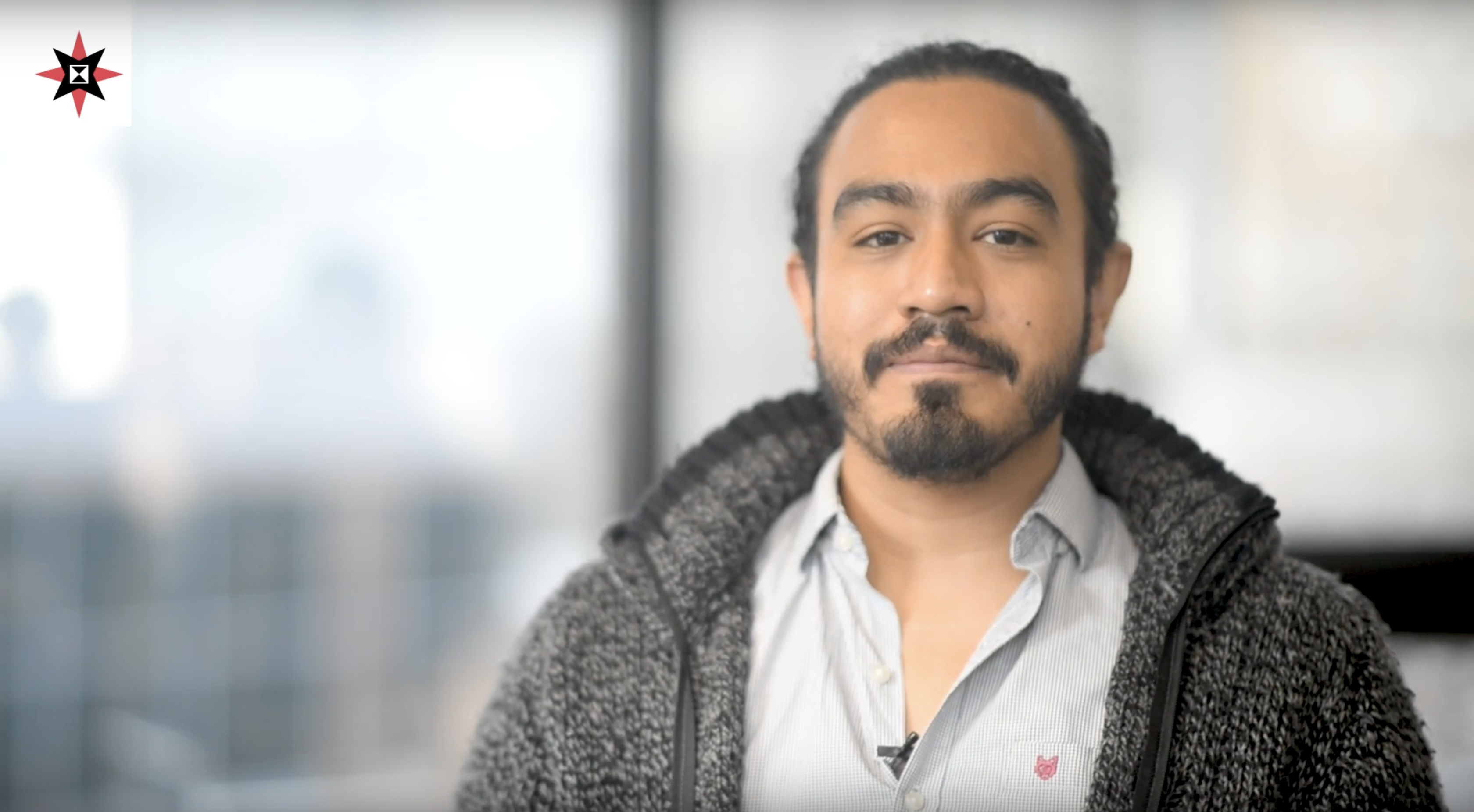
February 2019
When caravans of migrants began traveling north from Central America last fall to escape violence and poverty and seek refuge in the U.S., the AFSC community responded with generosity and compassion.
And as the Trump administration persists in pursuing policies fueled by hate, AFSC supporters continue to show the world what love can do – by supporting those who have risked everything for a chance at safety and peace and by raising the moral imperative for more humane immigration policy in the U.S.
Your support has made – and continues to make – a difference. Here are some highlights of our efforts in recent months.
Humanitarian aid
AFSC sent a delegation to meet with migrants in Mexico in November. Most had walked hundreds of miles with little more than the clothes on their backs. They were hungry and exhausted. Their feet were blistered. Some were sick. Humanitarian aid was needed.
In response:
- Our staff distributed water, food, hats, and electrolyte drinks directly to migrants making their way from El Salvador toward Guatemala.
- In Honduras, we worked with local organizations to provide migrants starting their journey with water, cookies, and information about their rights and about where to go for help and guidance in applying for asylum.
- We helped shelters in Guatemala buy food, including cereal, milk, pasta, and dough for tortillas. We also purchased kitchen supplies, medicine for children, personal hygiene items, and clothing, including jackets for infants and children to help them weather chilly nights.
- We supported efforts to assist LGBTIQ people who are fleeing violence and in need of international protection. We also improved conditions in a shelter for LGBTIQ people in Guatemala City by buying a washing machine, mattresses, and bedding.
- We provided funding to shelters, churches, and other community groups in Mexico, so they could offer lodging, meals, and other services to migrants.
- We helped hundreds of migrants obtain legal services, psychological support, and counseling, linking them to local organizations as they reached Northern Mexico, where many were supported in applying for visas to remain in Mexico and/or navigating the process for seeking asylum in the U.S. We also set up phone lines so people could call their families. For many, it was the first chance they’d had to let their loved ones in their native countries, the U.S., or Canada know they were alright.
- And we also brought a little joy to families in shelters, hiring clowns and musicians to entertain children in Tijuana and giving out toys, stuffed animals, and games that brought smiles to the faces of kids and adults alike amid these trying and traumatic circumstances.
Human rights monitoring
Throughout Central America, we met migrants who faced tear gas, rubber bullets, and harassment from authorities on their journey. They told us they were treated better when human rights monitors were present.
In response:
- We helped establish human rights brigades at the Guatemala-Mexico border with partners in the region. The brigades – staffed by 10 people at a time – monitor, observe, document, and report human rights violations and identify dangers to migrants. Not only do they help ensure the day-to-day safety of migrants, but they’re also key to evaluating the response of local, national, and U.N. agencies; identifying human needs; and improving coordination among organizations. Our human rights monitors have also served as intermediaries between migrants and authorities, helping migrants avoid abuse and harassment.
- Our staff in Guatemala also conducted monitoring at the border to assess the situation of Central American migrants stranded in Guatemala and how the new migration policy was functioning in Mexico.
- We supported organizations in Honduras in monitoring the Honduras - Guatemala border to verify the conditions of Honduran migrants who leave their communities.
- We also continued our longstanding program at the U.S.-Mexico border, monitoring use-of-force incidents involving Customs and Border Protection agents, making formal inquiries for investigations, and advocating for the U.S. to end practices that endanger migrants. In January, for example, our border program released a report criticizing Customs and Border Protection’s indiscriminate use of chemical agents to subdue migrants, including many children, on New Year’s Eve and New Year’s Day 2019, sharing first-hand testimony and calling for an investigation and end to the practice.
Advocacy
AFSC took the lead in organizing a nation-wide call for more humane U.S. immigration policies and the demilitarization of border communities.
On Dec. 10, International Human Rights Day, we launched a national week of action called Loves Knows No Borders: A moral call for migrant justice. More than 400 faith leaders from across the country joined us in San Diego for a nonviolent direct action at the U.S.-Mexico border. They were met by Border Patrol agents wearing riot gear and armed with tear gas, batons, and rubber bullets. Thirty of them were arrested for crossing a line in the sand in an act of civil disobedience. That same week, more than 70 solidarity events were organized across the U.S. by AFSC community members and partners. Together we generated more than 2,600 media stories underscoring the moral imperative of changing U.S. policy – and leading The Nation to name our action The Most Valuable Protest of 2018.
AFSC continues to involve and strengthen large civil society networks in Mexico in advocating with the new government to build more humane public policies and advocate for the abolition of immigration detention in the country.
Thank you
We are deeply grateful to the thousands of people across the country who have joined us in standing with migrants and pushing back on the anti-immigrant policies of the Trump administration. We look forward to continuing to partner with you in the months to come in working for a world in which everyone can live in safety and peace.